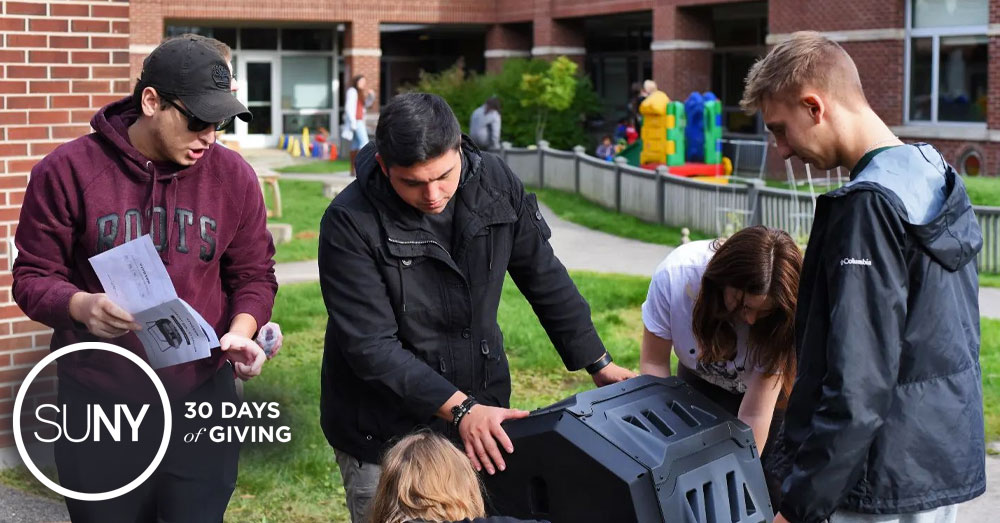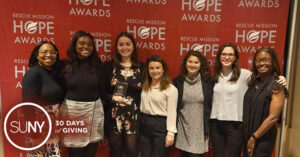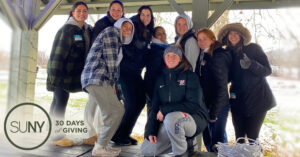For one group of SUNY Cortland anthropology majors, their field is more than a framework for studying human societies and cultures.
It’s a force for doing good in the world.
CULTURE Society, a nonprofit organization created earlier this year by SUNY Cortland students aligned with the university’s Sociology/Anthropology Department, applies the professional skills and perspective of the discipline to find creative and culturally sensitive solutions to problems facing people today.
“What we’re trying to do is use the definition of anthropology, which is just studying humanity, and apply that to a more — I guess — functional approach,” said their executive director, Christopher Fernandez, a senior anthropology and sociology dual major from Pittsford, N.Y.
The group’s anthropological activism has ranged from safely documenting culturally sensitive artifacts to providing free feminine hygiene products.
CULTURE Society is not yet recognized by the Student Government Association and doesn’t yet have a Cortland chapter. However, in May it gained state approval and federal Internal Revenue Service-designated 501 C (3) status.
Fernandez envisions eventual campus chapters all over the country. But for now, the group offers both a website, culturesociety.org, and a blog for sharing ideas on future cultural heritage, antiracism, human rights and environmental sustainability projects.
Projects currently include:
- In late September, CULTURE Society raised funds and installed a hand-cranked compost tumbler in the SUNY Cortland Childcare Center playground area. It will help give children an early exposure to sustainability practices.
- Members collected and distributed through the SUNY Cortland Cupboard 3,000 feminine hygiene products, covering one costly necessity that strains the budgets of female students.
- The group organizes lectures including, last semester, a sandwich seminar on human rights and immigration.
- CULTURE Society is starting to develop an antiracism and indigenous rights curriculum for high school age and younger students.
- The group, members of which have experience creating 3D images of artifacts, are offering to use photography and 3D scanning equipment to create digital “virtual museums” on behalf of monetarily impoverished but culturally rich societies. They will do the work for free and ask only for travel expenses.
People get confused about the very broad scope of CULTURE Society’s projects.
“We’re a non-profit but we’re just identified as an anthropological group. So, you take good ideas,” Fernandez said. “If someone comes to us and has an idea and we can facilitate it, then we do it, as long as it helps people.”
CULTURE Society’s seven-member board, assisted by some 30 student volunteers and numerous faculty advisors, combine anthropology, sociology and a mix of other academic disciplines found at the university to help humankind in any way these intensely people-oriented activists can dream up.
“I wouldn’t say the goal was to necessarily address things that existing organizations weren’t doing,” Fernandez explained. “But we are trying to solve common problems from an anthropological perspective. So, some things that we have been doing are very similar to what other groups have been doing. We are just consolidating it and looking at it slightly differently with different explanations.”




